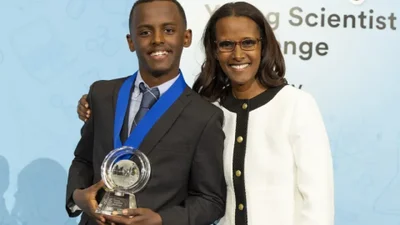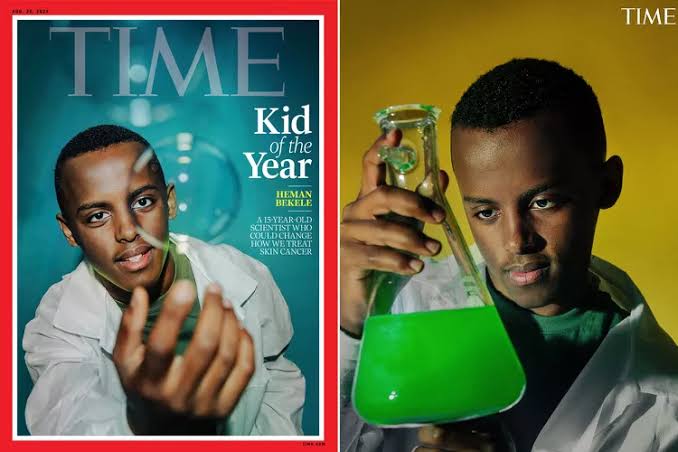At the age of 15, Heman Bekele is already on the verge of transforming the medical world with a potential breakthrough in skin cancer treatment—a feat many seasoned scientists aspire to achieve.
His innovative creation, a soap designed to treat skin cancer, has earned him the prestigious title of TIME magazine’s 2024 Kid of the Year.
Heman, a sophomore at W.T. Woodson High School in Virginia, was thrust into the spotlight with TIME’s announcement, recognizing him as a young scientist with the potential to make a significant impact on global health.
Reflecting on the honor, Bekele expressed his astonishment, saying, “It’s an incredible feeling, it’s surreal. To be honest, I haven’t even taken it in yet.”
The soap he developed is not just any ordinary product—it’s a novel approach that could make skin cancer treatment more accessible and affordable, particularly for those who might not have access to advanced medical care. This innovation is a beacon of hope, promising a future where effective treatment for skin cancer is within reach for many.

Bekele’s passion for science was ignited early in his life. Growing up in Ethiopia, he was deeply affected by witnessing people endure long hours under the scorching sun, a reality that heightened his awareness of the risks of skin damage and cancer.
“I saw so many people that were working really long hours under the hot sun,” Bekele recalled. “What keeps me pushing forward is thinking back to the impact that I will be able to have on those groups of people when I one day release that bar of soap.”
This early exposure to the harsh realities of life fueled his curiosity and determination. By the age of five, Bekele was already experimenting with household chemicals, a testament to his innate drive to understand and solve complex problems. This early engagement with science laid the foundation for his groundbreaking work today.
This recognition by TIME is not Bekele’s first brush with acclaim. In 2023, at just 14, he was crowned America’s Top Young Scientist by 3M and Discovery Education, outshining nine other finalists in a fiercely competitive field. That victory not only earned him a $25,000 prize but also set the stage for his current success.
Beyond the accolades, Bekele is actively engaged in advancing his invention. He has been working with the Johns Hopkins Bloomberg School of Public Health, collaborating with the Rebecca Lab to test his soap’s effectiveness on mice—a critical step towards securing FDA approval.
This certification would be a significant milestone, allowing his product to transition from the lab to the people who need it most.
As he continues his sophomore year, Bekele masterfully balances his academic commitments with his scientific pursuits. “It’s absolutely incredible to think that one day my bar of soap will be able to make a direct impact on somebody else’s life,” he shared with TIME. “That’s the reason I started this all in the first place.”
For Heman Bekele, this journey is only beginning. Yet, the legacy of his work is poised to resonate far beyond his years, potentially changing lives around the world for generations to come.












